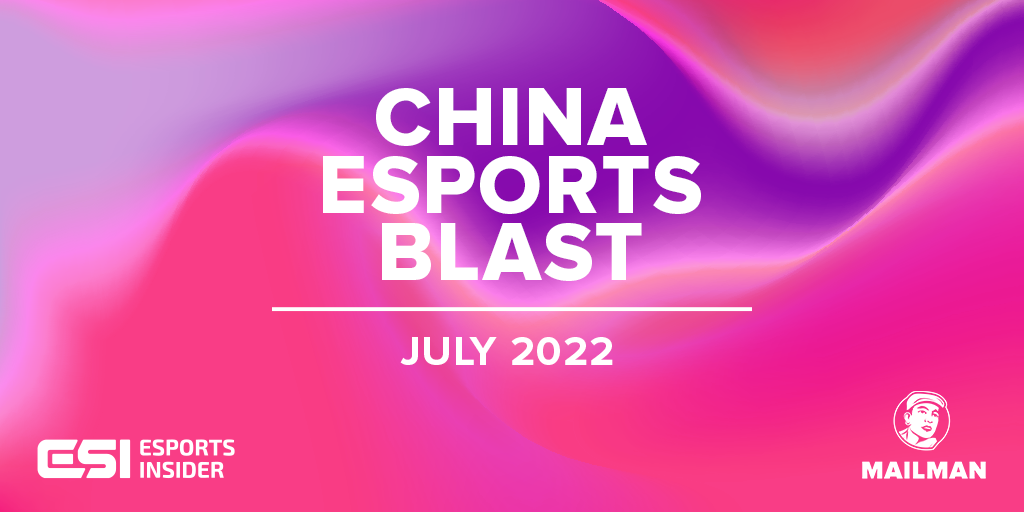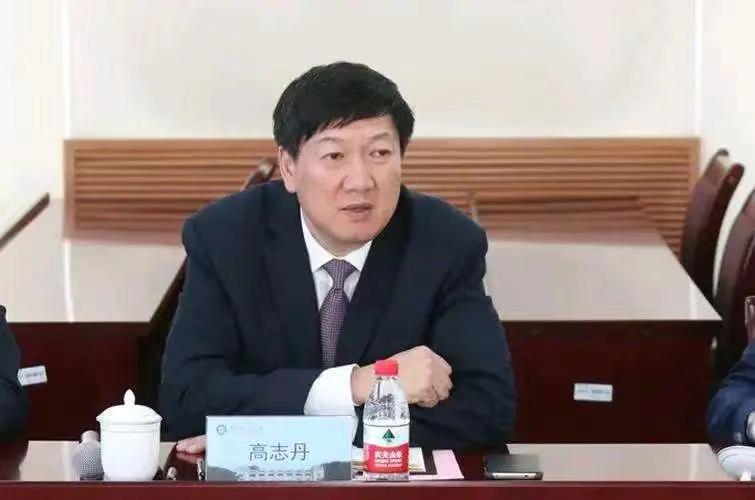Each month, sports digital agency Mailman shares the biggest industry news and insights from China’s esports scene, along with expert analysis on why they matter.

Last month was a milestone in China’s esports industry. Not only did the annual Tencent Global Esports Summit conclude in Hangzhou with multiple new esports plans announced, but a new director of the General Administration of Sport of China was appointed.
However, China’s esports industry saw its first downward trend through the first half of 2022 in a financial report announced by the Chinese authorities. Despite that challenging situation, there was still positive news last month.
China reports ~£931m in H1 2022 esports revenue, a 10% YoY decrease
The China Audio-visual and Digital Publishing Association (CADPA), a non-profit organisation owned by the Publicity Department of the Chinese Communist Party, unveiled the China Esports Industrial Report 2022 on July 22nd.
The report stated that the esports industry generated ¥76.5bn (~£931m) in revenue for the first half of 2022, marking a decrease of 10.12% year-on-year (YoY) compared to H1 2021. CADPA also pointed out that revenue excluding gaming and game streaming is ¥12.78m (~£156m), which also marks a decrease of 2% YoY.
This decrease is the first signal indicating how the pandemic and recent lockdowns have impacted China’s esports industry. Many live tournaments were cancelled, with events shifted online due to the country applying strict COVID-19 restrictions in many cities — especially Shanghai, the heart of China’s esports industry.
However, we also saw the industry express strong tenacity and endurance, as esports events including LPL and NetEase’s Naraka Bladepoint grand final came back with live audiences. We expect an increase in the next half of 2022 in the financial report.

China’s General Administration of Sport appoints new director, Gao Zhidan
On July 29th, the General Administration of Sport of China announced on its official website that Gao Zhidan, the organisation’s original vice director, had been appointed as director. The former director Gou Zhongwen is no longer part of the organisation. The reason behind these staffing changes was not disclosed.
Zhongwen has not been fully supportive of esports in the past, so it will be interesting to see Gao Zhidan’s position and plans for the industry. In the past tenure of Zhongwen (2016-2022), esports was in an awkward regulatory position between the General Administration of Sport, the culture department, and the Publicity Department of the Communist Party of China.
The upcoming Hangzhou Asian Games, which has esports as a medal sport, will be a useful benchmark for how Zhidan’s promotion will affect China’s esports industry.

Tencent’s TiMi Studio Group to offer $10m prize pool for Honor of Kings World Champion Cup
During the Tencent Global Esports Summit, Allan Zhang, general manager of Tencent TiMi Esports Center, announced that the 2022 Honor of Kings World Champion Cup (KCC) would feature a $10m (~£8.2m) prize pool. Zhang detailed that 16 teams from China’s King Pro League (KPL) and other regions outside of China will take part in the event at the end of 2022.
This is a huge moment for mobile gaming, as the competition will break its own record by becoming the highest prize pool competition in mobile esports history. As one of the most profitable games in the world, Honor of Kings and its developer Tencent’s TiMi Studio have shown their ambitions in esports.
Meanwhile, the KCC might also become the biggest esports competition in China with the Hangzhou Asian Games having been postponed until 2023.
NetEase’s Identity V League sells player cards
On July 21, Chinese game publisher and esports operator NetEase announced that it would sell Identity V League (IVL) player cards, inspired by NBA player cards. Identity V is NetEase’s first esports franchise league, which English Premier League team Wolverhampton Wanderers (Wolves) competes in. Teams will receive a revenue share from the sale of the cards.
NBA’s player cards are a thriving commercial strategy that esports could learn from. NetEase makes the IVL player card a double win for both esports organisations and tournament organisers to generate both revenue and community engagement.
Mailman is a leading sports digital agency in China. It helps sports organisations & brands to build sustainable businesses in China, one of the world’s most challenging markets. Mailman is an Endeavor China company.

